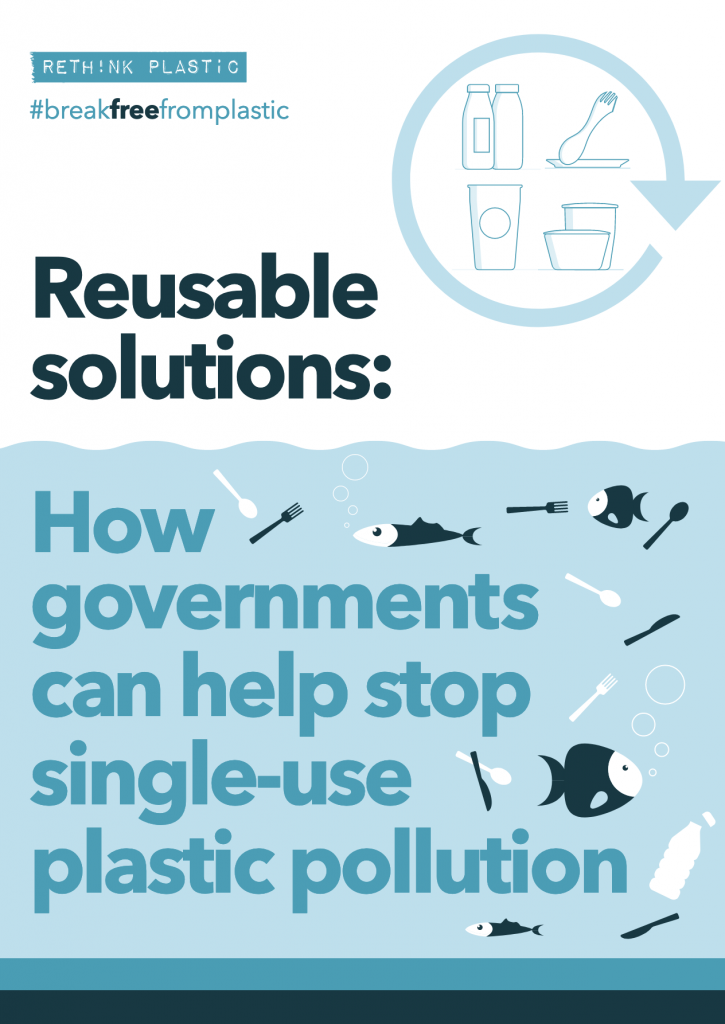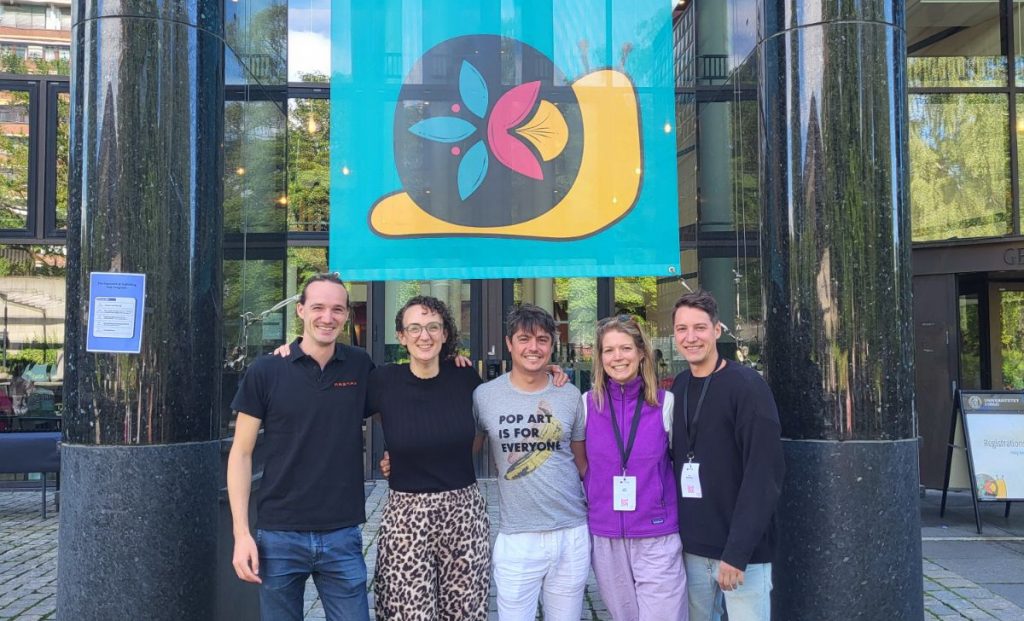Zelena Akcija / Friends of the Earth Croatia calls on decision-makers to finally recognise the problem of period poverty and start working on systemic solutions.
Activists marked Period Poverty Week – which takes place from 24 to 28 May – by placing a banner shaped as a single-use menstrual pad reading “We pay this waste in blood” outside Zagreb Central train station.
“Period poverty is a global problem and solving that problem is a human right,” said Ana Marija Mileusnic from Zelena Akcija / Friends of the Earth Croatia. She added that there is a “bloody” truth about conventional disposable plastic menstrual products, which have a negative impact both the planet as well as menstruators.
Activists warned that tackling menstrual poverty requires systemic change; from the introduction of sex and health education to the adoption of measures that make safer, reusable and sustainable menstrual products available to all menstruators.
“We call on decision makers to reduce the tax on menstrual supplies and encourage the promotion of reusable menstrual items as a solution,” said Mileusni?.
In Croatia, the main problem is the tax on menstrual supplies, which amounts to 25 percent, which is the third largest tax on consumer goods in the world. The high VAT rate on essential hygiene items, on which half of the population depends, increases social inequalities and discriminates against menstruators.
“More than 10 percent of menstruators in Croatia are not able to buy enough single-use pads to change them regularly. More than 10 percent of them cannot afford any menstrual products, and most often they choose them according to the price, not the quality “, explained Mileusni?.
This was shown by the first such research in Croatia which was conducted by the association PaRiter from Rijeka. “According to the research, as many as one third of people with menstruation would choose safer, more sustainable and reusable supplies if they could afford them,” Mileusni? added.
Menstrual items are expensive, and the most commonly-used menstrual products are the cheapest in short term, but also the most harmful to the health of menstruators.
“Such products are made of disposable plastic, and in addition contain a cocktail of harmful chemicals whose presence can cause serious consequences for human health such as heart disease, infertility and even cancer,” Mileusnic explained.
Single-use plastic menstrual products also have a negative impact on the environment, and the main consequence is visible in landfills and in the seas. There, pads and tampons, together with their applicators, are one of the ten most common single-use plastic products and as such are subject to the EU Single-Use Plastics Directive.
“Reusable and sustainable menstrual supplies are economically viable in the long run, they are a healthier choice for menstruators and they reduce plastic pollution. However, in order to make their use as widespread as possible, systemic incentives are necessary; from inclusion in the education system and tax reduction to incentives for the purchase of such products “, concluded Mileusni?.










